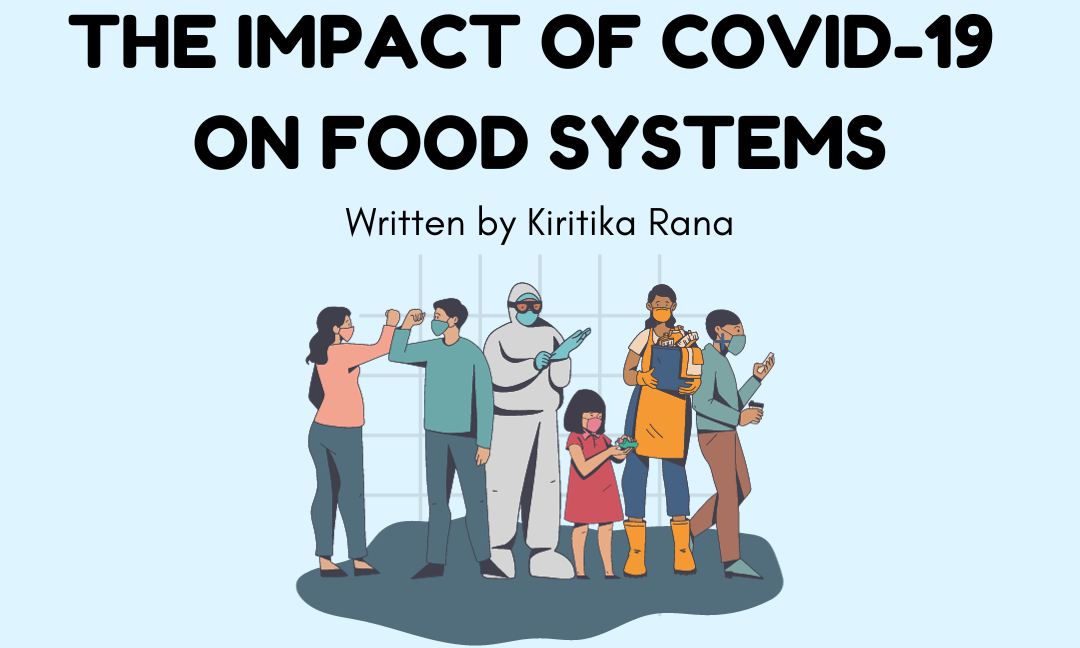Written by Kiritika Rana
Edited by Kiritika Rana
Designed by Kiritika Rana
Published by Maryam Khan
A lot happened during the COVID-19 pandemic, from lockdowns to not seeing friends and family, to feeling isolated and limited in what you could do. Many people are unaware that COVID-19 has an impact on food systems. In this reading, you will get to learn about how COVID-19 impacted Food Systems.
Short-Term Supply Chain Disruptions
The immediate impact of the COVID-19 pandemic on food systems was marked by supply chain disruptions. Lockdowns and travel restrictions hampered the movement of goods, resulting in shortages of essential goods in some areas while causing surpluses in others. Farmers faced labour shortages and logistical challenges, resulting in food waste as crops went unharvested in some areas, while others faced food shortages and price increases.
Escalating Short-Term Food Insecurity
In the short term, the pandemic exacerbated food insecurity by causing millions of people to lose their jobs and income streams, making it difficult to access or afford nutritious food. School closures disrupted meal programs, particularly for vulnerable children who relied on them for daily nutrition. To meet the immediate needs of their populations, governments and non-governmental organizations had to rapidly expand social safety nets and food assistance programs.
Global Trade Vulnerabilities in the Short Term
The pandemic’s initial phase exposed flaws in the global food trade. Export restrictions and transportation disruptions highlighted the dangers of relying heavily on international food supply chains. Nations rethought their reliance on imports for essential goods, emphasizing the importance of more resilient, localized food systems.

Long-Term Impacts on Food Systems
Looking beyond the immediate crisis, the pandemic’s long-term effects on food systems became clear. The economic consequences of COVID-19 prompted changes in consumer behaviour, such as a shift toward online grocery shopping and a greater interest in locally sourced and sustainable foods.
Resilience and Adaptation in the Long Term
The pandemic highlighted the importance of food system resilience and adaptability. It urged governments and businesses to invest in technologies like remote monitoring and digital platforms to optimize supply chains, predict disruptions, and provide farmers with real-time information. In the long run, these innovations have the potential to improve food system resilience.
COVID-19 highlighted the short-term instability of global food systems while emphasizing the long-term importance of resilience and adaptability. It emphasized the significance of regional food production, social safety nets, and technological advancements. As the globe recovers from the pandemic, there is a rare chance to construct more strong and sustainable agricultural systems capable of withstanding future shocks and ensuring food security for all.
Sources:
https://www.oecd-ilibrary.org/agriculture-and-food/covid-19-and-food-systems_69ed37bd-en
https://www.frontiersin.org/articles/10.3389/fsufs.2022.724321/full

